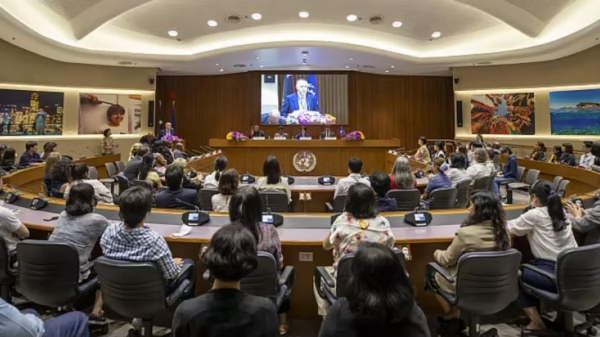In a recent development, a Kuwait court has upheld the guilty verdict in the murder case of overseas Filipino worker Jullebee Ranara. This decision reflects the ongoing legal proceedings in cases related to the protection of workers.
The case of Jullebee Ranara, a Filipino domestic worker, gained significant attention both in Kuwait and the Philippines. Ranara was found dead in her employer’s residence in Kuwait in 2019. The initial investigation pointed towards foul play, leading to the arrest and subsequent trial of her employer.
After a thorough investigation, the court found the employer guilty of the murder charges. The recent confirmation of the guilty verdict reinforces the commitment of Kuwait’s legal system to ensuring justice and accountability in cases involving the welfare and safety of overseas Filipino workers (OFWs).
This verdict serves as a reminder of the importance of worker protection and the need for stringent measures to safeguard the rights and well-being of OFWs. It is crucial for both sending and receiving countries to work together in creating an environment that promotes the safety and dignity of migrant workers.
The Philippines, along with other countries, has been actively advocating for the protection of its citizens working overseas. The government has implemented various programs and initiatives to ensure the welfare of OFWs, including the establishment of overseas labor offices and the provision of legal assistance.
However, incidents like the murder of Jullebee Ranara highlight the challenges that still exist in ensuring the safety of OFWs. It is essential for both the sending and receiving countries to strengthen their collaboration and enhance measures to prevent such tragic incidents from occurring in the future.
Moreover, this case emphasizes the significance of legal proceedings in addressing crimes against migrant workers. The confirmation of the guilty verdict demonstrates the commitment of the Kuwaiti legal system to hold perpetrators accountable and deliver justice to the victims.
Efforts must continue to be made to improve the overall protection of OFWs, including the establishment of stronger labor laws, effective monitoring mechanisms, and increased awareness among both employers and workers. Governments and relevant stakeholders should work together to create an environment that discourages abuse and ensures the welfare of all migrant workers.
It is important to recognize that incidents like the murder of Jullebee Ranara are not isolated cases. They shed light on the broader issue of worker protection and the need for comprehensive reforms in the treatment of migrant workers.
As the legal proceedings in this case continue, it is essential to remain vigilant and ensure that justice is served. The confirmation of the guilty verdict in the murder case of Jullebee Ranara is a step towards achieving accountability and upholding the rights of overseas Filipino workers.
Ultimately, this case serves as a reminder for all countries to prioritize the protection and welfare of migrant workers. It is a collective responsibility to create an environment that respects the rights and dignity of all individuals, regardless of their nationality or occupation.
































